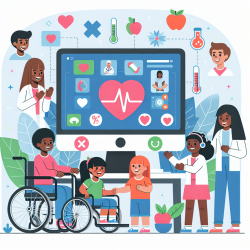The Hidden Costs of Tobacco Waste: A Call to Action for Practitioners
As professionals dedicated to enhancing the well-being of children, it is imperative that we consider all factors that can impact their environment and health. A recent study titled "Online Simulation Model to Estimate the Total Costs of Tobacco Product Waste in Large U.S. Cities" sheds light on an often-overlooked issue: the economic and environmental burden of tobacco product waste (TPW).
Understanding the Research
The study conducted by Schneider et al. (2020) utilized an online simulation model to estimate the direct and indirect costs associated with TPW in the 30 largest U.S. cities. The findings are staggering: total annual TPW-attributable costs range from $4.7 million to $90 million per city, with a combined total of $264.5 million per year for all cities. These costs are not just a financial burden but also a reflection of the negative economic externalities created by cigarette smoking.
Implications for Practitioners
As practitioners, understanding these findings can guide us in several ways:
- Advocacy for Cleaner Environments: We can advocate for policies that reduce TPW, thereby improving the environments where children live and play.
- Education and Prevention: Educating families about the environmental impact of tobacco use can lead to healthier choices and reduced waste.
- Collaborative Efforts: Partnering with local governments and organizations to support TPW reduction initiatives can amplify our impact.
Encouraging Further Research
While the study provides a comprehensive analysis of TPW costs, it also highlights the need for further research, particularly regarding the impact of emerging tobacco products like electronic nicotine delivery systems (ENDS). These products add complexity to waste management due to their components, such as plastics and lithium batteries.
Taking Action
To create meaningful change, practitioners can:
- Engage in community outreach to raise awareness about TPW.
- Support legislative efforts aimed at reducing tobacco waste.
- Incorporate environmental education into therapy sessions where appropriate.
By leveraging the data from this study, we can advocate for policies and practices that protect the environment and, by extension, the health and well-being of children.
To read the original research paper, please follow this link: Online Simulation Model to Estimate the Total Costs of Tobacco Product Waste in Large U.S. Cities.










